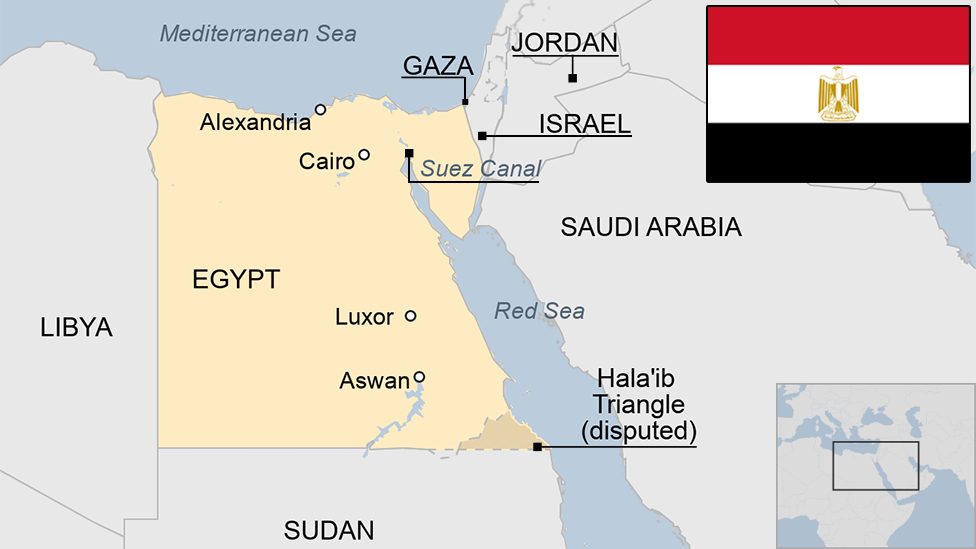What death sentences say about Egypt's Islamist crackdown
- Published
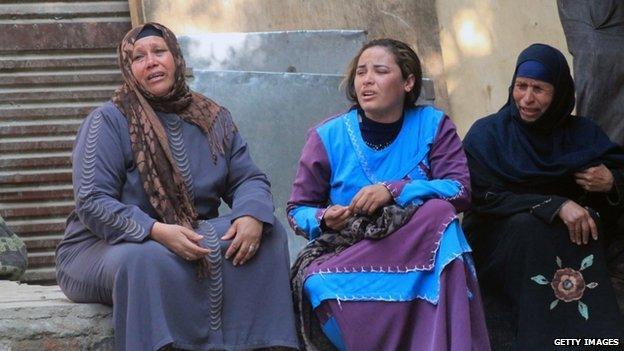
The death sentences were passed after a two-day trial, sharply criticised by rights groups
Authorities in Egypt have cracked down harshly on Islamists since President Morsi was removed by the military in July. Hundreds have been killed and thousands more arrested.
On Monday a court in Minya sentenced to death 528 Muslim Brotherhood (MB) supporters - the biggest number in recent Egyptian history.

Why are so many people in detention?
Defendants' relatives reacted with horror as the verdicts were announced
The authorities cracked down harshly on dissent after the military removed President Mohammed Morsi from power in July 2013. Hundreds have been killed and perhaps as many as 20,000 arrested on various charges, including staging protests without government permission.
Under a controversial protest law passed in November 2013, protesters are required to obtain three days in advance permission to demonstrate.

How many of those held are Islamists?
It is generally acknowledged that most of the detainees are Islamists.
The Brotherhood was designated a "terrorist" organisation by the authorities in December 2013. Since then, many hundreds of MB members have been arrested on charges of belonging to a "terrorist" group.

Who are the most significant prisoners?
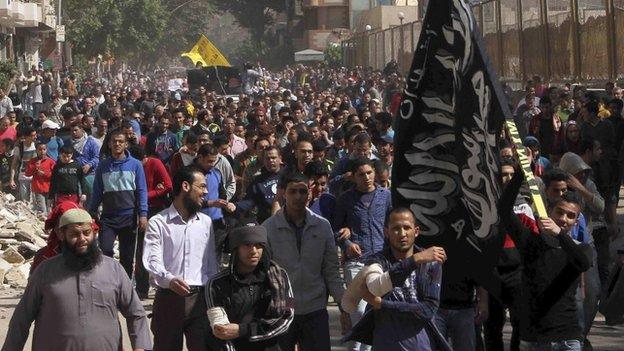
Pro-Morsi and Muslim Brotherhood supporters have taken to the streets despite strict protest laws
Top Islamist leaders, some of their family members and political activists are among those detained. The most high-ranking include: ousted President Morsi, his Prime Minister Hisham Qandil, MB's general guide Mohammed Badie and prominent political activists Ahmed Mahir, Ahmed Dumeh and Mohamed Adil.
There are also journalists, including some working for Qatari al-Jazeera TV, and students among the detainees - the latter believed to number about 67.
What's become of Egypt's Morsi?

Have there been any high-profile trials?
Yes, the most prominent are those of ousted President Morsi himself and leading figures in the Brotherhood, who last appeared in court on 23 March on charges of involvement in killing anti-government protesters outside Ittihadiya presidential palace in December 2012. The trial was adjourned to 5 April.
On the same day, political activist Alaa Abdel Fattah was released on bail in the case known in local media as the "Shura Council incidents". Abdel Fattah and 24 others were accused of staging a protest without permission outside the Shura Council headquarters on 26 November 2013.
And the following day, there was a further hearing in the trial of three al-Jazeera English journalists in Egypt on charges of spreading false news and belonging to a "terrorist group".

Is it a fair process?
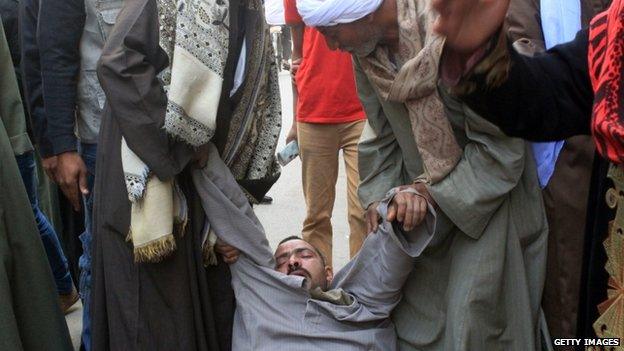
Thousands have been held and hundreds killed since August 2013
Several political parties have accused the interim government of human rights violations. In a joint statement on 10 February, they said revolutionary activists were facing random arrest and detention violations. They cited reports from rights organisations saying detainees "have suffered gross violations and that the basic requirements for a fair trial were not available".
The statement noted that there have been several reports alleging torture during detention.

Is this solving Egypt's security problem?
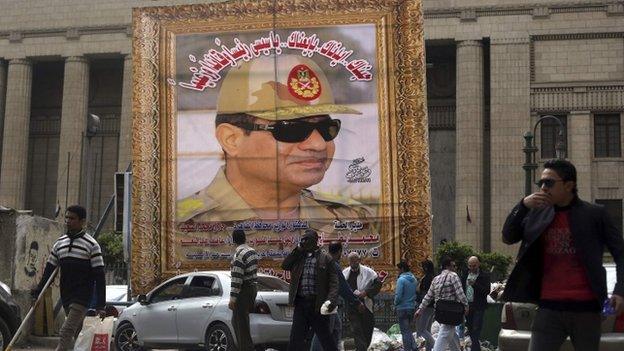
Egypt's army chief Abdel Fattah al-Sisi has taken a hard line against dissent
Not according to some observers, who feel it may further exacerbate security problems in the country. They suggest that the increasing crackdown on Islamists and the arrests of protesters could prolong the wave of violence that apparently began as retaliation for Mr Morsi's ouster and could drive the country further into unrest.
This can already be seen in the regular attacks on army and police personnel by jihadist groups. These began last July and have been frequent. At first, most attacks took place in the Sinai Peninsula, but have now reached mainland Egypt.
BBC Monitoring, external reports and analyses news from TV, radio, web and print media around the world. For more reports from BBC Monitoring, click here. You can follow BBC Monitoring on Twitter, external and Facebook, external.
- Published24 March 2014
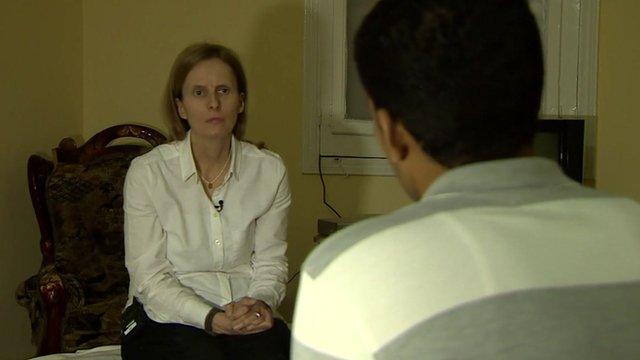
- Published2 January 2024
